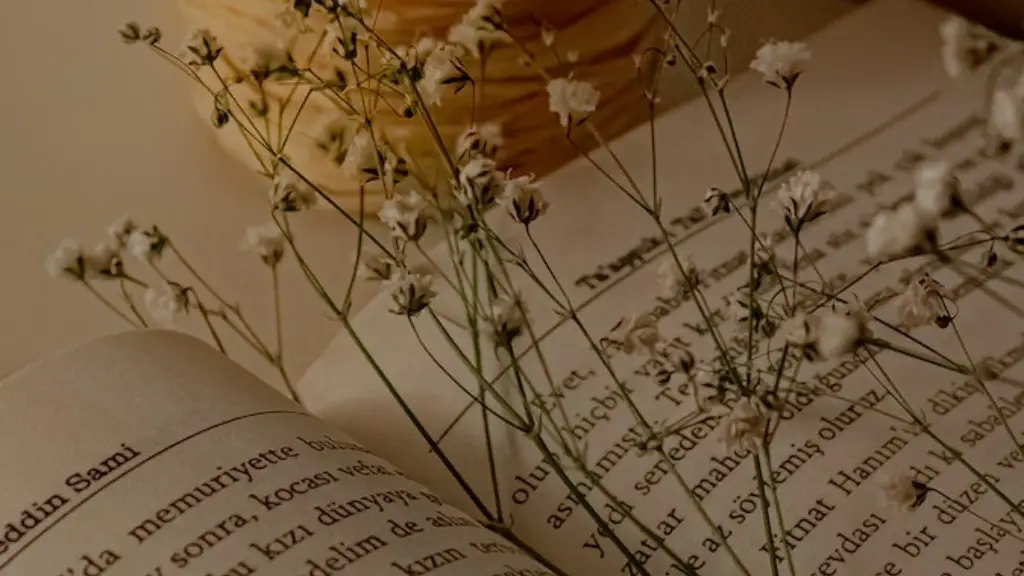Robert Frost is an American poet, most remembered for his works of modern poetic writing. Frost was born in San Francisco in 1874, and died in Boston in 1963. He was not only renowned for his works, but for his presence in the early stages of American modernist poetry. Frost was known for his vast use of metaphors, natural imagery, and dialogues between his characters.
Throughout his life, Frost wrote many poems, many of which were infused with his own views about life and our own role in it. He often used nature as a background for his literary works, as it provided a contrast between the natural and the human elements in life. Numerous of Frost’s works focus on the idea of individuality and how our individual choices shape the different aspects of our lives.
Frost drew attention with his free form style, combined with his strict rhyme and meter. He chose to go against the accepted academical norms of poetry and cultivated a unique voice. His success in contemporary poetry was partly due to this distinct style and his daring simplicity with words.
Frost’s writing helped to changed the boundaries of poetic expression, allowing poets to explore new aspects of their craft. He was also renowned for his sense of humor, which often infused his poems, illustrating his own views on life and what he believed were the consequences of decisions.
At the same time, Frost was not only a literary figure. He was heavily involved in the artistic and political landscape of the United States. He frequently held lectures and made appearances, thus sparking much interest in his works. His influence in the early stages of American modernist poetry was credited for the spread of his own style of writing.
Frost’s contribution to poetic expression and his presence among American modernist poetry laid the groundwork for many other poets who followed him. He is still celebrated for his works, and his life story is often used as an example of success, especially in terms of developing one’s craft as an artist.
Influence of Nature
A key element in Robet Frost’s works was his use of natural imagery and often unrequited dialogue with the natural world. Nature assisted him in creating the landscape in his poems of melancholy and, many times, dread. As he often wrote on life’s struggles or its implications in his writing, Frost used nature to contrast the human with the physical realm, thus further acting as a metaphor for life’s struggles and what it entails.
In his works, Frost often layers multiple physical representations of nature with emotion, characterising its presence in his poems as a being capable of containing and ultimately influencing life’s events. Frost often showed affection for nature, as its power and beauty seemed to bring him closer to understanding life’s complexities.
Frost felt that nature would provide him with its own set of values and judgement for his works. He attributed a spiritual quality to its presence, thus resulting in works of literature which blended natural occurrences with human experiences.
Both the physical and spiritual elements of nature were ever present in Frost’s works. He claimed to have been touched by its “essential things” and many of his poems seemed to constantly search within nature one’s place in life.
Together, Frost’s craftsmanship allowed the reader to connect with nature on a spiritual sense. His works allowed them to think about the wider elements that shaped their lives. By having a connection to nature, Frost claimed that the reader will be able to find salvation within the natural world.
Dialogue with Human Being
Frost also heavily relied on dialogue between its characters as an example of how to approach life’s struggles. He used conversations between individuals as a means to discuss the boundaries of morality as well as life’s decisions in general.
In his works, Frost would often have his characters discuss the consequences of their choices and navigate the aftermath. As a result, his poems illustrate both the psychological and emotional aspects of decision making as well as the different paths one might follow in life.
Frost used these conversations to explore the sense of alienation people feel in their daily lives. He wanted to exemplify how the process of decision making is often lengthy and complex. He shows how our choices can transform our lives and the implications that accompany them.
Frost believed that these conversations serve as a reminder of our own roles in life and how it affects us and those around us. He wanted his readers to carry a reminder with them of how their individual choices will shape their lives and the idea of how we are all interconnected to each other.
In his work, Frost was able to transmit the feelings associated with decision making and the moral dilemmas that often accompany them. His characters often argued back and forth, illustrating the complexity of the situation and how the decision making process is nearly always a difficult one.
Transmission of Humor through Writing
Another aspect of Frost’s writing was his use of humor. As a poet, Frost was able to create a truly unique perspective while simultaneously being able to deliver messages of wisdom in a humorous way. He has been known to use sarcasm and irony to convey difficult topics and to deliver them in a way the reader can better understand and relate to.
Frost’s style of humor often pretends to be simple, yet surprisingly thought-provoking. He was a master at disguising his ideas as innocuous humor. He chose a certain approach to help emphasize his more difficult messages without his readers feeling as if he was lecturing them to change their ways.
Furthermore, Frost was able to present his messages in a humorous and often catchy manner. By being humorous, and at times self-deprecating, Frost was able to draw his readers in and make them think on the deeper implications of his messages. His tongue-in-cheek approach to morality and life’s struggles allowed his readers to find a connection in their own lives.
Frost was able to deliver thought-provoking and sometimes quite somber messages to his readers without them feeling overwhelmed. He wanted to create a dialogue between him and his readers and, by using humor as a device, Frost ensured that his readers were engaged, as well as entertained.
Integration of Philosophy
Yet another element in Frost’s works was his integration of philosophy. He often dealt with existential themes and delved into matters of the human condition. However, Frost’s unique approach was to show these themes often in a subtle manner.
His works often revealed an insight into his own views on human nature, morality and our own role in defining our lives. Through his works, Frost was often able to show the consequences of our own choices and how these can shape our lives.
Frost was able to heavily uncover the complexities found in philosophical themes in a way that was both poetic and at the same time, easy to understand. By using a combination of metaphors and dialogues between his characters, Frost crafted a remarkable representation of the human experience and how our decisions shape our lives and our own understanding of it.
Frost’s works also blend complex philosophical themes with elements from nature. This blend was something truly unique throughout his works and often allowed his readers to connect with these themes on an emotional level. Frost wanted to illustrate our own struggle for a greater understanding of life and continue to strive for the answers of life’s greater unknown.
Invidual Choices
Frost was often credited for his works of modern poetic writing which explored the idea of individual choices and how they shape the different aspects of our lives. He often used characters in dialogues to explore the boundaries of morality, as well as the implications of life’s decisions.
Frost’s poems explore the consequences of our choices and how they can often contribute to our lives with either dire or joyous consequences. His poems speak of how the path we choose in life can affect our future and how the choices we make will make unexpected turns depending on the path chosen.
Frost felt that one’s ability to handle their choices is a skill one needs in order to survive the struggles of life. He saw it as a mark of courage and the strength of ones’ character. Nonetheless, he saw it as the ultimate challenge of life, which is to confront the fear of one’s choices and their implications.
Through his works, Frost wanted to address the idea of how our choices are shaped by our environment, and how these shapes can ultimately affect our lives. He wanted to explore the thin line between what we can control and what is nothing more than a result of our environment.
Social Influence
In addition to his works, Frost was also an important figure in the social context of his time. He was a key figure in the American modernist poetic landscape and was credited for his presence and influence.
Frost was known for attending conferences and showcasing his works in lectures, thus sparking much interest in literature in general. He was a mentor and an inspiring figure to many of his followers and he was known for his own approach to writing.
By being active in both the literary and political landscapes of his time, Frost was able to express his ideas and thoughts with far greater reach than most writers in the past. His presence enabled him to become a much renowned figure of his time.
Frost’s ability to stand out prompted both admiration and criticism. His outsized success in books sales and general fame has often been attributed to his presence among American modernist poetry, as he was able to create a truly unique style from the academical norms of his time.





